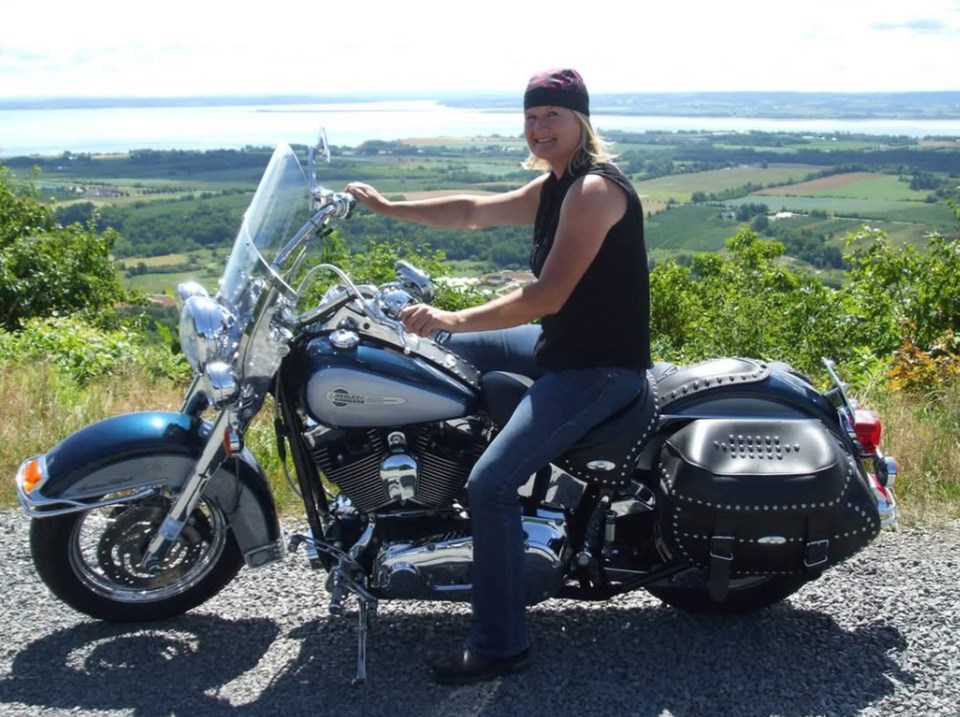HALIFAX — Family members of a 60-year-old Nova Scotia woman killed by her partner say she was an "effortlessly funny" person who could also be lovingly honest and direct.
In a statement on Monday, the Elizabeth Fry Society of Mainland Nova Scotia identified the victim as Elaine Mosher of Mahone Bay, N.S., a community 90 kilometres southwest of Halifax. The group worked with Mosher's niece and sister to compose the tribute to the victim, describing her as an avid gardener who was part of a “close-knit” family.
“She was well-known for her delicious, bright-red tomatoes that were ‘out of this world,’ which she generously shared with her family and friends. At gatherings, good food for Elaine and her siblings was a must, especially fresh lobster,” the statement said.
“Elaine was a devoted daughter, sister, and aunt, frequently fishing and lobstering with her father before he passed, going on drives with her mother on weekends, and getting together for coffee and conversation with her sisters as often as she could.”
Police say Mosher's husband killed her and then killed himself at their home on Jan. 5. She was one of six women killed by their male partners since the province in September declared that intimate partner violence is an "epidemic."
The tribute said Mosher shared her commitment to others through the many jobs she had over the years, including as a "well-loved bus driver," dedicated caretaker at Rissers Beach Provincial Park, and through her work at the provincial Department of Natural Resources.
Emma Halpern, director of the Elizabeth Fry Society, said the family wants the public to "realize Elaine Mosher is so much more than a victim."
"She is this incredibly loved person in her community and that's why it's important to name her and to talk about who she was and the life she touched," she said in an interview on Monday.
Halpern said the six intimate-partner deaths in Nova Scotia in three months make it "terrifyingly clear that the prevalence of this violence, and other forms of gender-based violence, can be considered as no less than an epidemic."
Police issued a release on Monday saying the death over the weekend of a 22-year-old woman from Centreville, N.S., was the latest case of a woman killed by her male partner.
Suzanne Lohnes-Croft, the mayor of Mahone Bay, said in an interview Monday that residents in the quiet neighbourhood where Mosher was killed have been deeply saddened by her death; neighbours on her street knew and socialized with one another, she said.
“She was a pretty funny person, I understand. A lot of people will miss her sense of humour and her brightness. She was an enjoyable person to be around,” said the mayor.
Lohnes-Croft said that since the death she’s received a number of calls from residents of the town relating their own experiences with intimate-partner violence. “Domestic violence is very prevalent. It’s more prevalent than we know. But it’s also secretive. It’s kept quiet and for the most part people don’t like to talk about it,” she said.
Part of the problem, said Lohnes-Croft, who is also a former Liberal member of the legislature, is the rapid rise in the cost of housing, which leaves victims with few options if they want to flee their abuser.
“Where do you live if you leave your partner? Who rents to a single woman who may not have an income or doesn’t have a big enough income to pay for her own place?” she asked.
“There’s all kinds of things we have to think about to assist people to get out of a dangerous situation.”
This report by The Canadian Press was first published Jan. 13, 2025.
Michael Tutton, The Canadian Press




